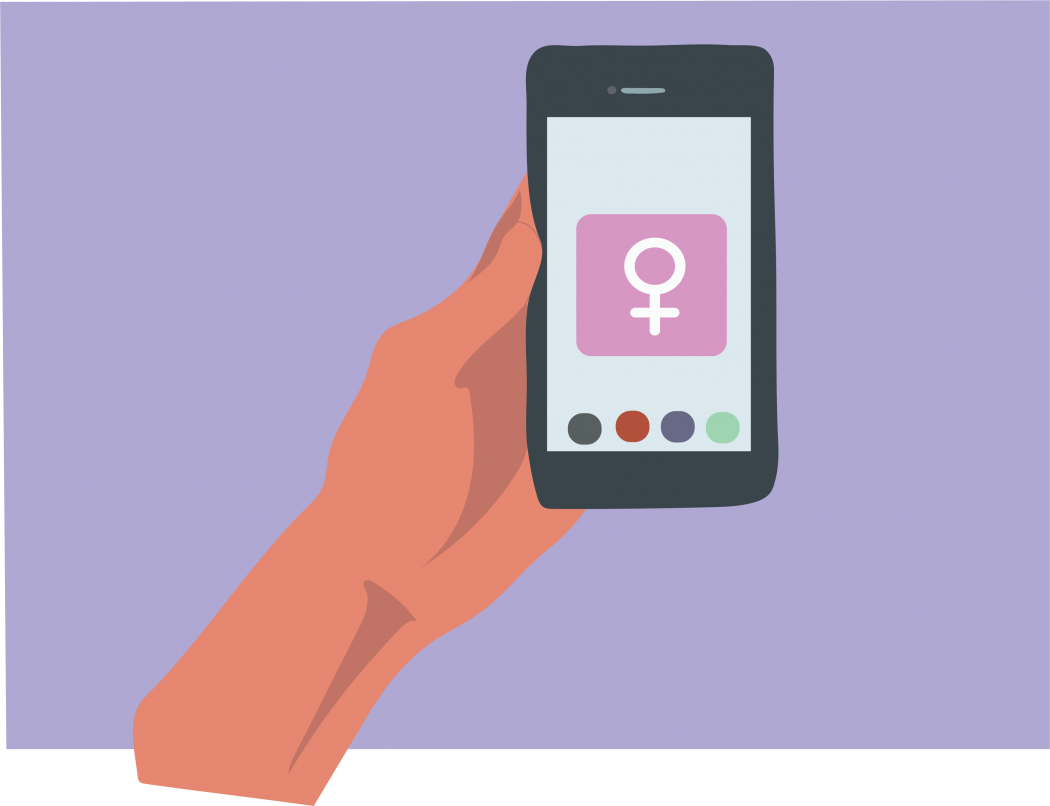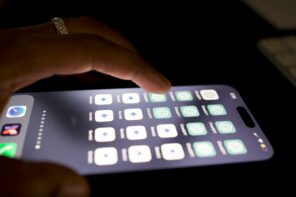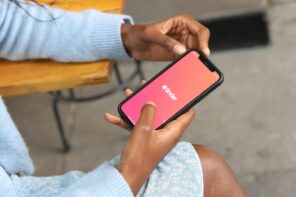It is an open secret that the tech industry is notoriously run by men, with women occupying only a small portion of corporate positions. Companies like Google and Amazon often attribute these discrepancies to a ‘pipeline theory:’ instead of admitting that these hiring practices are sexist, they merely claim that there are too few women candidates to hire. Through a quick search, one can see how search engines, AI systems, and algorithms all contribute to sexist online discrimination, returning stereotypical search results centered around marginalized communities, or they will focus on advertising rather than users’ information. These seemingly impartial virtual spaces are actually sites for regulating and policing women’s identities.
To begin chipping away at yet another facet of male-dominated culture, there has been a recent surge in apps that are oriented and marketed towards women. One of the popular examples is Bumble: a self-declared feminist dating app that only allows women to send the first chat after matching with a potential partner. Other common women-oriented apps are period tracking apps like Clue or Flo. Both of which serve as calendars for anticipating one’s period. These menstrual apps also offer wellness articles and forums centered around women’s health, and they provide spaces for women to discuss intimate, biological topics. Moreover, popular publications such as Cosmopolitan or Elle Magazine have introduced mobile platforms for on-the-go use. Apps including We the People or Countable allow women to remain updated on global feminist news.
On a basic level, seeing feminist content — whether it relates to dating, tracking the cycles of women’s bodies, or legal policies — is important because it fills a niche in otherwise male-centric apps in the technological arena. Feminist apps also seem to favour and facilitate women community building based on disclosing individual and shared experiences. Understanding that other women are disenchanted with more mainstream dating apps like Tinder can be a way of dismantling neoliberal opinions that pervade current post-feminist rhetoric.
Doing so can help one see the less obvious ways these ostensibly empowering apps in fact perpetuate gender inequalities.
Our culture states that women should be self-sufficient, focused on their own world-views, and challenge sexism only by overcoming internalized barriers. Yet, I argue that it’s important to look beyond the screen and examine these apps more critically. Doing so can help one see the less obvious ways these ostensibly empowering apps in fact perpetuate gender inequalities. In some instances, this seedy behavior can be seen in the app’s privacy policy or terms and conditions, but companies are aware that the average user hastily checks the ‘agree’ box to access the app rather than extensively probing through the fine print.
Take Flo, for instance. After downloading the app, users are prompted to enter highly personal information, including details such as their weight, their sexual activity, and the frequency and duration of their periods. While Flo does not explicitly leak this information, their policy states that users’ data is sent to third party services and is frequently used for targeted marketing. This loophole allows third party services to send this data to companies like Google Ads, where it is used to locate social media users with comparable information in order to attract new consumers.
While Flo is legally permitted to do this, the app also discloses that once women’s information has progressed beyond their control, the job then becomes regulated by external privacy policies. By gathering information about women’s menstrual health, apps like Flo have access to sensitive information: information that many women would not consent to sharing to major corporations.
Instead, they capitalize on women’s experiences and allow their data to be processed and regulated by companies that show little regard for the individuals who unconsciously provide this data.
Flo cultivates the illusion of a safe space by focusing on women’s diverse menstrual experiences. It provides an interface which leads users to believe the app is simply a digitization of one’s calendar.
Yet, their marketing practices undermine this projected image. Instead, they capitalize on women’s experiences and allow their data to be processed and regulated by companies that show little regard for the individuals who unconsciously provide this data.
While Bumble does not mine women’s data in this way, I also argue against the claim that this app is, in any way, shape, or form, “feminist.” I previously wrote about how dating apps such as Tinder are inextricably associated with hookup culture. By speaking to many of my female-identifying friends that use the app, I’ve also heard that women are often sent unsolicited, sexually explicit messages from their male matches.
In order to stand out from the crowd, Bumble chooses to market itself as occupying an off-the-grid type technological role. It advertises itself as an app that is focused on “real dating” and not one focused on facilitating casual sex. Yet, when comparing the two apps, the premise is virtually the same. Men and women navigate the app by swiping through users’ profiles and each can only contact one another if both parties have mutually swiped right.
One should not toss her phone and give up on the belief that virtual equality is within reach
Bumble purportedly challenges traditional notions that men must make the first move by instead affording this power to women. At the same time, this does not allow both sides to equally participate in the initial encounter; it is re-paving rather than leveling the playing field. I’ve often heard that if you’re interested in getting “cuffed,” Bumble is the best platform to turn to. The premise of the app — in which Bumble is both oriented for monogamy and women — perpetuates the misguided notion that women differ from men on a deterministic level. It continues the idea that because of our social conditioning, women are more inclined to seek out lasting relationships, whereas men prefer casual sex. The messaging is simple: Bumble is for women, while Tinder is for men. This feels like oversimplified marketing to me. Bumble executives cannot simply slap a feminist label on their app because of a simple “who messages first” restriction.
I believe that continuing to produce apps for women is inherently important in a technological era that seems to be built around men. There is no denying that women should have a role in tech. However, as I have pointed out, not all content is good content. Just because an app sells itself as being feminist, it does not mean that male executives have women’s interests at heart.
One should not toss her phone and give up on the belief that virtual equality is within reach. Instead, a woman should educate herself on the corporate culture that surrounds the relationship between feminism and apps. Doing so will expose the blatant issues and ambiguities that come with technological misogyny.








